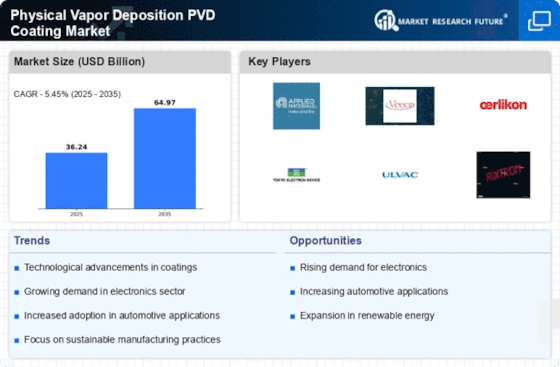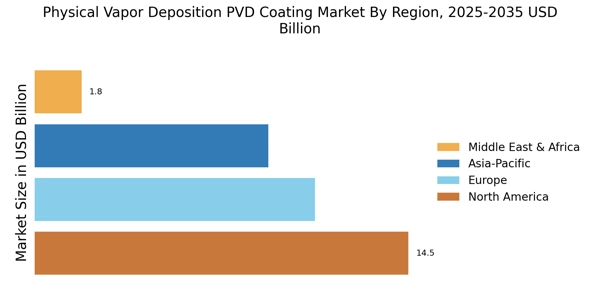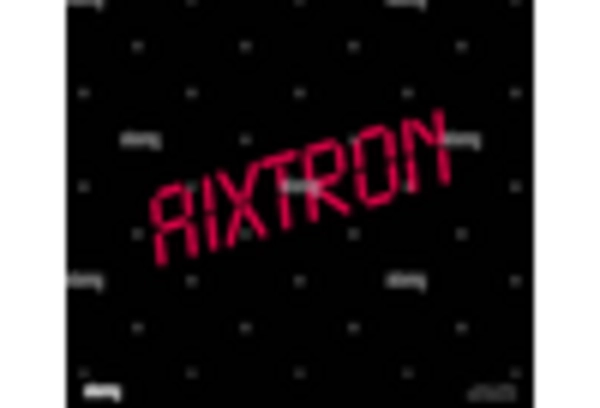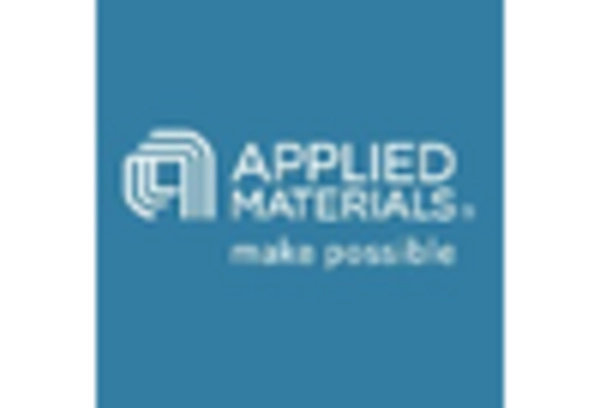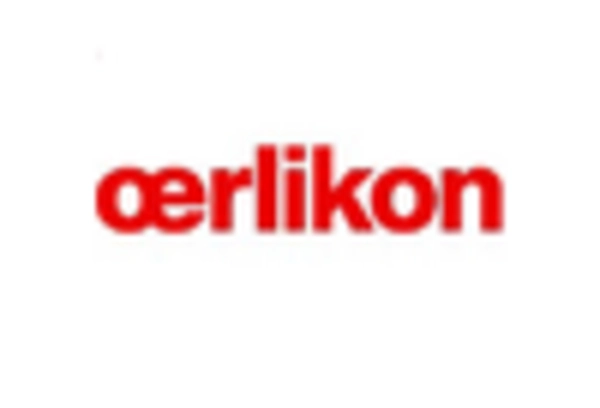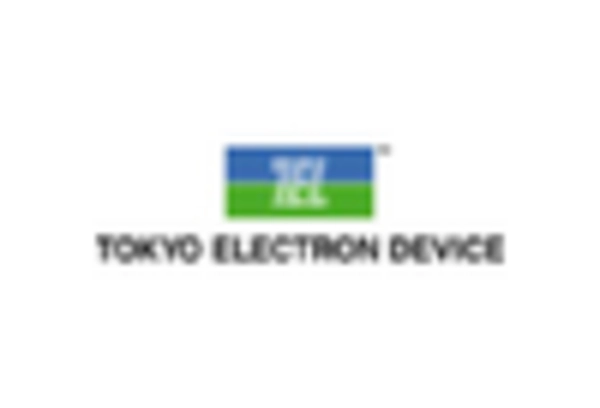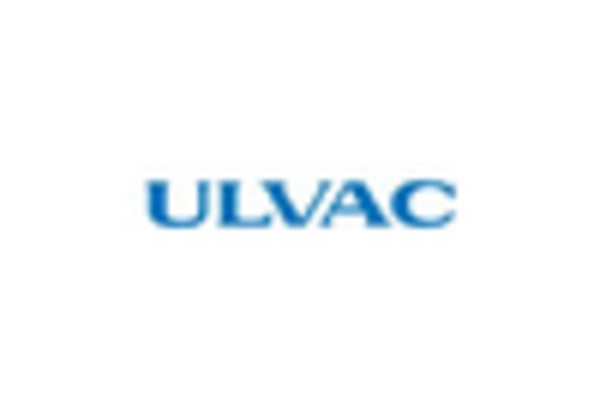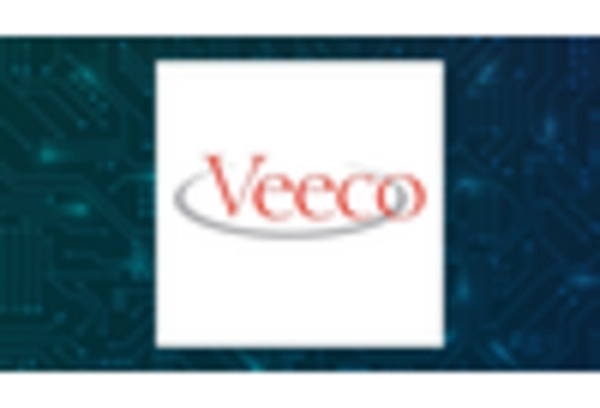Growth in the Electronics Sector
The Physical Vapor Deposition PVD Coating Market is significantly influenced by the growth in the electronics sector. As consumer electronics become more sophisticated, the demand for high-quality coatings that enhance performance and aesthetics is increasing. PVD coatings are widely used in the production of electronic components, such as semiconductors and displays, due to their ability to provide excellent adhesion and uniformity. The electronics industry is projected to grow at a rate of approximately 5% annually, which is likely to bolster the demand for PVD coatings. This growth is driven by the continuous innovation in electronic devices, necessitating advanced coating solutions that can meet the evolving requirements of manufacturers. The synergy between the electronics sector and the PVD coating market is expected to foster further advancements and opportunities.
Rising Demand for Advanced Materials
The Physical Vapor Deposition PVD Coating Market is witnessing a rising demand for advanced materials that require high-performance coatings. As industries evolve, there is a growing need for materials that can withstand extreme conditions, such as high temperatures and corrosive environments. PVD coatings provide a solution by enhancing the mechanical properties of substrates, making them suitable for applications in harsh conditions. The aerospace and defense sectors, in particular, are driving this demand, as they require materials that meet stringent performance standards. The market is expected to expand at a CAGR of around 7.5% as manufacturers increasingly turn to PVD coatings to enhance the performance and longevity of their products. This trend indicates a robust future for the PVD coating market as it adapts to the needs of advanced material applications.
Diverse Applications Across Industries
The Physical Vapor Deposition PVD Coating Market benefits from its diverse applications across multiple sectors. Industries such as electronics, automotive, and medical devices are increasingly utilizing PVD coatings for their superior properties, including wear resistance, corrosion protection, and aesthetic enhancement. For instance, in the electronics sector, PVD coatings are essential for producing durable and visually appealing components. The automotive industry employs PVD coatings to improve the longevity and performance of parts, while the medical field utilizes them for sterilization and biocompatibility. This broad applicability is projected to drive the market's growth, with estimates suggesting an increase in demand by approximately 8% over the next few years. The versatility of PVD coatings positions them as a critical component in various manufacturing processes.
Technological Advancements in PVD Coating
The Physical Vapor Deposition PVD Coating Market is experiencing a surge in technological advancements that enhance coating performance and efficiency. Innovations such as magnetron sputtering and atomic layer deposition are becoming increasingly prevalent, allowing for the production of thinner, more uniform coatings. These advancements not only improve the durability and aesthetic appeal of coated products but also expand their applicability across various sectors, including electronics, automotive, and aerospace. The market is projected to grow at a compound annual growth rate (CAGR) of approximately 7% over the next five years, driven by these technological improvements. As manufacturers adopt these cutting-edge techniques, the demand for high-quality PVD coatings is likely to increase, further propelling the market forward.
Sustainability and Environmental Regulations
The Physical Vapor Deposition PVD Coating Market is increasingly influenced by sustainability initiatives and stringent environmental regulations. As industries strive to reduce their carbon footprint, the demand for eco-friendly coating solutions is on the rise. PVD coatings are often favored due to their low environmental impact compared to traditional coating methods, which may involve hazardous chemicals. The market is witnessing a shift towards sustainable practices, with many companies investing in research to develop greener PVD processes. This trend is expected to contribute to a market growth rate of around 6% annually, as businesses seek to comply with regulations while also appealing to environmentally conscious consumers. The emphasis on sustainability is likely to reshape the competitive landscape of the PVD coating market.


